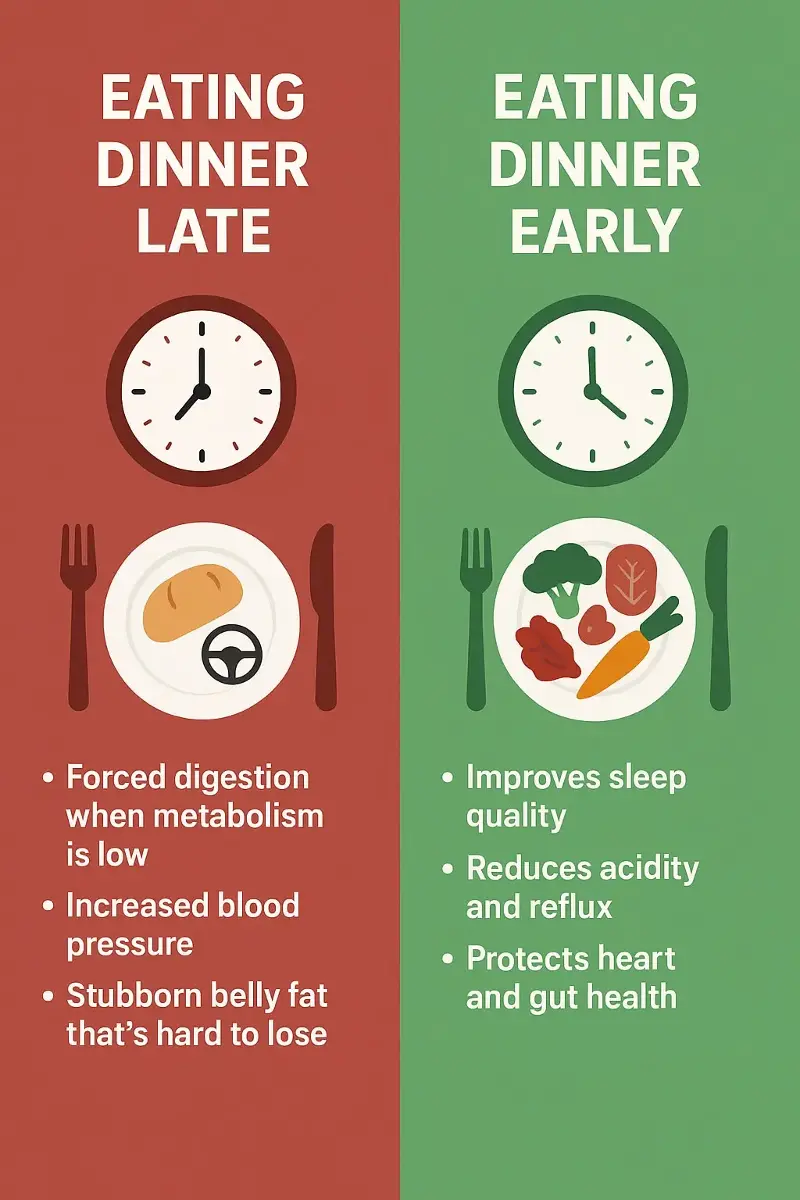
You might think eating late at night is harmless - after all, your schedule is busy and dinner often gets pushed back. But your body doesn’t run on your timetable; it follows its own natural rhythm. When late-night meals become a habit, they can disrupt this rhythm, making digestion harder and silently harming your health over time.
Dr Shubham Vatsya, a gastroenterologist and hepatologist at Fortis Vasant Kunj, Delhi, with over a decade of experience, is raising awareness about how regular late-night dinners can silently harm your health. In an Instagram video posted on October 3, the gastroenterologist warns that eating late can raise blood pressure and even increase the risk of diabetes - while explaining how having early dinners can work in harmony with your body’s natural biology.
What happens when you eat late at night?
According to Dr Vatsya, “Eating late at night daily is like inviting diseases.” He highlights that your body runs on a natural clock, not your dinner schedule, and eating late forces your system to digest food when your metabolism is at its lowest, raising the risk of high blood sugar, disrupted sleep, and stubborn belly fat that’s difficult to shed.
He explains, “Our cells and digestive hormones follow a circadian rhythm, which means they are active during the day and remain in rest mode at night. When you eat dinner late at night, it increases the risk of blood sugar spikes, high insulin, excessive belly fat, and diabetes.”

Eating dinner early is a biological necessity
Dr Vatsya emphasises that eating dinner early isn’t just a dietary suggestion - it’s a biological necessity that can enhance gut health, improve sleep quality, and promote longevity.
He explains, “Eating dinner early improves sleep quality. It also reduces acidity and reflux. Furthermore, in the long term, both the heart and the gut remain protected. Being healthy does not just depend on what you eat, but also on when you eat.”
According to the gastroenterologist, eating dinner before 7pm is the one of the simplest forms of self care.
Note to readers: This article is for informational purposes only and not a substitute for professional medical advice. It is based on user-generated content from social media. HT.com has not independently verified the claims and does not endorse them.
